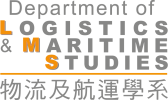Best Student Paper Competition
Awards
- The first-place will receive HK$5000.
- The second-place will receive HK$3000.
- Each honorable mention will receive HK$1000.
Eligibility Requirements and Author Guidelines
- Competition participants should be students. The paper should be led and presented by the student during the conference. Each participant is required to register the conference and submit only one entry for competition. Failure to register the conference may lose the eligibility of the competition.
- Paper topic must fit the conference's theme: POM for a Better World: Accountable, Adaptive, and Agile. Example of interest areas can be found at here. The submitted paper should be written in English, and the presentation should be conducted in English as well.
- For your submission to be considered complete, you will need to submit the following information via email with title “Best Student Paper Competition” to This email address is being protected from spambots. You need JavaScript enabled to view it. on or before 15 November 2022:
- Please include the entrant's contact information, all co-authors’ information, and the paper title in the submission email.
- Please attach the paper in completely anonymous form and in PDF file format. The main paper cannot exceed 32 pages, including all references, tables, graphs, and appendices. In addition to the main paper, you may submit an online supplement as a separate file. Papers that do not satisfy submission guidelines will be disqualified.
- The format of the paper should follow that of the manuscripts submitted for consideration by Production and Operations and Management (available at https://www.poms.org/journal/author_instructions/).
- Submissions for student paper competition will be considered for conference presentation automatically (and hence please do not submit the same paper for conference presentation).
Award Selection Criteria
Each paper/presentation will be evaluated based on two criteria:
- Academic significance (originality, depth, completeness and work's potential impact on future research).
- Engineering or business relevance (importance of the problem and its impact on engineering or business practice).



